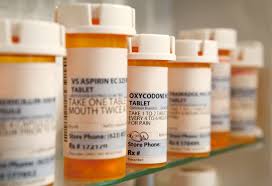13 Jan, 2025 | buyviagraonlineusacanadaww | No Comments
Understanding the Role of Prescription Drugs in Modern Healthcare

The Importance of Prescription Drugs in Healthcare
Prescription drugs play a crucial role in modern healthcare, providing effective treatment for a wide range of medical conditions. These medications are prescribed by healthcare professionals based on individual patient needs and medical history.
One of the key benefits of prescription drugs is their ability to target specific health issues with precision. Unlike over-the-counter medications, prescription drugs are designed to address complex conditions and diseases that require specialized treatment.
Prescription drugs undergo rigorous testing and approval processes to ensure their safety and efficacy. Healthcare providers carefully evaluate each patient’s condition before prescribing a medication, taking into account factors such as allergies, existing medications, and potential side effects.
Adherence to prescribed medication regimens is essential for successful treatment outcomes. Patients must follow their healthcare provider’s instructions regarding dosage, frequency, and duration of treatment to maximize the benefits of prescription drugs.
While prescription drugs offer significant therapeutic benefits, it is important to use them responsibly. Misuse or abuse of prescription medications can have serious consequences, including addiction, overdose, and other health risks.
In conclusion, prescription drugs play a vital role in modern healthcare by providing effective treatment options for a variety of medical conditions. When used correctly and responsibly, these medications can improve patient outcomes and quality of life.
Understanding Prescription Drugs: Common Types, Examples, and Usage
- What is under prescription drugs?
- What are the three most commonly used prescription drugs?
- What are 10 examples of drugs?
- What is an example of a prescription only drug?
What is under prescription drugs?
Prescription drugs refer to medications that can only be obtained with a valid prescription from a healthcare provider. These medications are typically used to treat specific medical conditions and require professional evaluation before they can be dispensed. Prescription drugs are regulated to ensure their safety and effectiveness, and they play a crucial role in managing various health issues. It is important for individuals to follow their healthcare provider’s guidance when using prescription drugs to achieve optimal treatment outcomes and minimize potential risks.
What are the three most commonly used prescription drugs?
The three most commonly used prescription drugs vary depending on factors such as region, population demographics, and prevalent health conditions. However, some of the consistently popular prescription medications worldwide include: 1) Statins for managing cholesterol levels and reducing the risk of heart disease; 2) Lisinopril, an ACE inhibitor commonly prescribed for hypertension and heart failure; and 3) Levothyroxine, a thyroid hormone replacement therapy for individuals with hypothyroidism. These medications are widely prescribed due to their effectiveness in treating prevalent health issues and improving patient outcomes.
What are 10 examples of drugs?
When asked for examples of drugs, it’s important to note that medications can vary widely in their purpose and composition. Common examples of prescription drugs include antibiotics like amoxicillin, pain relievers such as ibuprofen and acetaminophen, cholesterol-lowering statins like atorvastatin, and blood pressure medications such as lisinopril. Other examples may include antidepressants like sertraline, asthma inhalers like albuterol, insulin for diabetes management, and antihistamines for allergies. It’s crucial to always consult a healthcare professional before taking any medication to ensure it is appropriate for your individual health needs.
What is an example of a prescription only drug?
A common example of a prescription-only drug is antibiotics. Antibiotics are medications used to treat bacterial infections and are typically prescribed by healthcare providers after evaluating the specific infection and the patient’s medical history. It is essential to follow the healthcare provider’s instructions when taking antibiotics to ensure effective treatment and to prevent antibiotic resistance. Obtaining antibiotics without a prescription can be harmful, as improper use can lead to serious health risks and contribute to the growing issue of antibiotic resistance in society.

Write Reviews
Leave a Comment
No Comments & Reviews